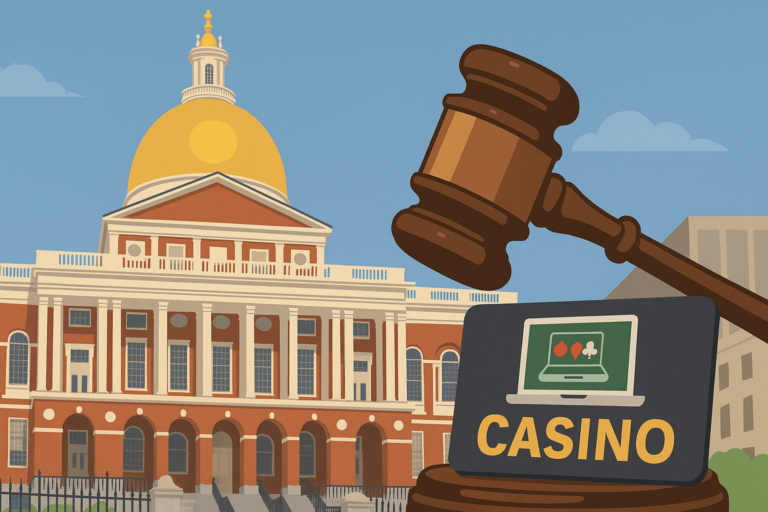
Massachusetts lawmakers are about to kick off some serious talks about online casinos.
They’ve got a hearing scheduled for next week, June 23, where the Joint Committee on Consumer Protection and Professional Licensure will examine House Bill 332 and Senate Bill 235—both aiming to legalize, regulate and tax online gambling in the state. It looks like the Bay State could be opening its digital doors soon!
And who exactly brought these bills, House Bill 332 and Senate Bill 235, to the table? That would be state Sen. Paul Feeney and Rep. Daniel Cahill, who actually introduced them way back in February.
Their reasoning is pretty simple: only seven states currently allow online casino gambling, and Massachusetts is literally sandwiched between neighbors like Connecticut and Rhode Island—both of whom already have legal iGaming.
Lawmakers in Boston are saying it’s high time they ensured that gambling dollars and tax revenues stayed in the Bay State instead of flowing to their neighbors.
For now, the closest to success that Massachusetts has made with iGaming is legalizing iLottery in July of 2024, although the launch was pushed till 2026.
What you need to know about the bills
So, here’s how the bills from Feeney and Cahill would actually work:
First off, the state’s three existing brick-and-mortar casinos would get “Category 1” licenses. This means each of them could team up with up to two different online gambling partners.
On top of that, regulators could hand out as many as four “Category 2” licenses to other operators with no physical casino in the state required.
Now, for the money side: getting one of these licenses would cost $5 million upfront for the first five years and then another $5 million to renew for five more. Once they’re up and running, operators would pay a 20% tax rate on their online gaming revenue. This tax rate is actually quite a sweet deal for iGaming companies, especially when you consider it’s way lower than the 54% that Pennsylvania charges on online slots.
If all goes well, Massachusetts players will have access to online casino games, including blackjack, poker, roulette, and real-money slots.
Opposition party weighs in
As usual with a decision like this that will change the gambling market in the state forever, it comes with opposition parties, and Jordan Maynard, the chair of the Massachusetts Gaming Commission, has been very vocal about his stance.
Jordan told The Guardian:
“A lot of people try to figure me out as a regulator. It’s really, really simple. I’m not thinking about big business… I’m thinking about: how does this affect the patrons and the citizens of Massachusetts?…
They were worried about having the conversation in public. My job is not to increase profits for the operators. That’s not my job. My job is to balance the equities and to cure any inequities. And so I didn’t take it personally.”
That is not all the opposition the iGaming effort is facing. On a federal level, a new coalition, the National Association Against iGaming (NAAiG), has expressed their concerns, which they termed a “social danger.”
It’s still up in the air how things will play out in the Bay State, but over in Maine, they recently sent an online casino bill to Gov. Janet Mills. This bill would give the state’s tribes iGaming rights, though Mills is expected to veto it.








